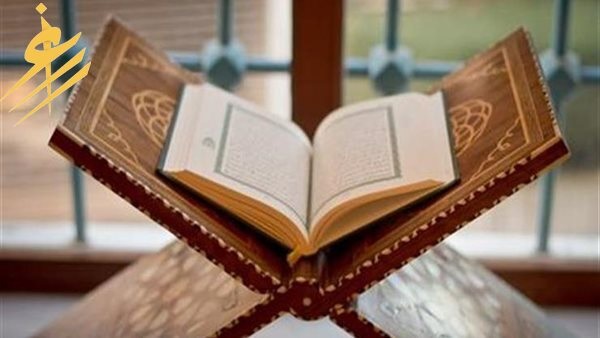Learn about various examples related to the eloquence of Holy Quran, which contributed greatly to know many tasks and evidences. the interpreters of the modern era are famous for issuing many booklets in this matter to contribute facilitating for the readers continuously.
Most six famous examples reveal the eloquence of Holy Quran
There are various examples of the eloquence of Holy Quran as follows:
- The eloquence of Quran is one of the important aspects that proved the miracle of this great book.
- The miracle of Quran appears in several basic aspects, including the eloquence of its vocabulary, where its words are characterized by accuracy and profusion, including the strength of its systems that express a tight structure and a superior arrangement of verses and surahs.
- Regularity also stands out in its connotations, where meanings flow in an order and sequence that opens the way for reflection and understanding.
- The importance of Quran is also evident in its fulfillment of meanings, as the book includes many aspects and concepts that form an integrated system.
- Goodness manifests itself in Quran’s statement of the facts in a charming way, his profound influence leaves an impact that cannot be found in any other type of sermon and book.
- The Arabs in the era of the Prophet (peace and blessing of Allah be upon him) recognized the eloquence of Quran and did not find it similar in its linguistic and literary style.
- They stood in confusion in front of this book, which left a very profound impact on their souls and made them feel the emotional and intellectual impact that they did not find in any other text.
Best books of Quran’s eloquence
The Shamel book on the rhetoric of Quran included the following interpretations:
- So the verse included several types of rhetoric, so that when they came to the valley of the ants, an ant said, O ants, enter your dwellings, lest Solomon and Solomon destroy you. his soldiers while they are unaware [Surah An-Naml:18]. it has ten genders of speech; She called, admonished, named, commanded, listened, warned, singled out, generalized, pointed out, and excused.”
- As for she called out in his saying “Ya”, and as for the alerted “Ya”, and called “the ants”, and commanded “enter”, and stated “your dwellings” specifically, and warned “do not destroy you”, and singled out “Solomon”, and generalized “and soldiers” Heh,” she indicated, “they.” And I excused myself, explaining the excuse “they don’t feel.”
- On the authority of Al-Asma’i, he heard a Bedouin slave girl singing beautiful poetry, and he said to her: May God curse you for not telling you.
- She said to him: Is this considered eloquence with the Almighty’s saying: And We revealed to the mother of Musa to suckle him, and if you fear for him, throw him into the sea, and do not be afraid and do not grieve Indeed, they will return him to you and make him among the messengers [Al-Qasas: 7].
- So he combined in one verse two reports, two commands, two prohibitions, and two glad tidings.
- So the two reports: And We revealed to Umm Musa and his saying: If you fear for him, and the two commandments: suckle him and throw him in, and the two prohibitions, and do not be afraid and do not grieve me, and the two good tidings: I am Bring him to you and make him one of the messengers [Al-Qasas: 7].
- Do not fear that he will perish from being thrown into the sea, and do not grieve over his separation [13].
- Fear is the anticipation of the bad, sadness is a psychological state that arises from the loss of a loved one, the loss of a loved one, do not be afraid, and do not grieve.
- What is the difference between fear and sadness? And why in Umm Musa? For these two things.
You can also read about: The easiest way to memorize Holy Quran using Jeras app.

The eloquence of Holy Quran in miracles
- And among the wonders of the Qur’an is its telling of many past and future unseen things that the Prophet, peace and blessings be upon him, did not witness and his people did not know. This [Surah Hud:49].
- This is the Qur’an, so tell him of the past unseen that they have not seen, and the future unseen, some of which were realized in their era, and some of which were realized in our era, or will be achieved in the future.
- Among the future unseen that was realized in their era is His saying: The Romans have been defeated in the lowest part of the earth, and after their defeat, they will be victorious in a few years [Surah Al-Rum: 1-4]. So the Persians conquered the Levant, and then the Romans appeared after that after nine years.
- And contemplate the Almighty’s saying: And among His signs is the presence in the sea like flags [Al-Shura: 32].
- Science is the mountain, the largest ark in the previous time, Noah’s Ark had a miracle for Noah , the other ships made by humans, what is the largest ark? How big is it?
- But in the modern era, aircraft carriers, cargo carriers, and sea freight, if you approach your small boat to an oil tanker, container truck, or aircraft carrier, meditate on the Almighty’s saying: And among His signs is the presence in the sea like flags like a mountain.
- Such a size what was invented before? This is now found at this time.
- And what happened during the era of the Companions of the future unseen: You will enter the Sacred Mosque, God willing, in safety, with your heads shaved and shortened, not afraid [Surah Al-Fath: 27].
- Omar says: Didn’t you tell us that we will come to the House and circumambulate it?
- He said: I told you this year? You will come to it and circumambulate it [14].
- And it happened, and this is the best for him.
You can download jeras app from here, for more religious, social and educational articles.






